What is the best wood for windows?

The range of wood we have found best for making wood windows are Accoya, Oak, Idigbo, Iroko, Sapele and European Redwood (often just called "softwood"). However, that's not the full story. I'll break down the pros and cons, based on our experience, so you have a better idea of why these have become our favoured choices. However we always recommend you speak with a professional (hopefully us) before making a choice so it best suits your situation.
Accoya. The perfect choice? This one has potential. Accoya is actually plantation grown Radiata Pine from New Zeland. It's then shipped to the Netherlands and then goes through a treatment process (no poison is used or helath risks in the final product), creating a highly durable timber. I'm not sure I can relay all the things that Accoya has been used for, to do that visit their site linked to above and take a browse. In terms of windows it's a very, very good choice. However, we would recommend the following approach. Only purchase windows that have been finish coated properly in your chosen finish coating of paint or stain. By that I mean end grain sealers, high quality paints etc. Also, only use high quality brass or stainless steel fittings, this is due to the acidic nature of the wood. The one issue with this choice is a higher cost. But depending on what's important to you, the fact that it's a fast growing plantation timber means it's more of a crop rather than slow growing timber, this fact, along with its durability are hard to beat. Very close to being a number one for anyone considering new wood windows.
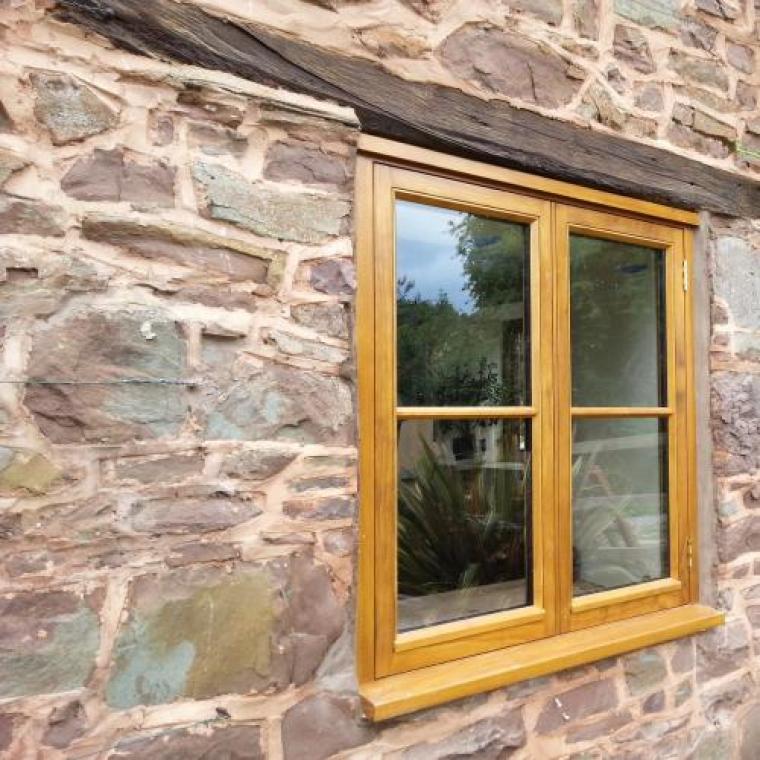
Oak. A choice made with the heart. That's not a stupid tag line to win business, it's something we've noticed from our clients and with some good reason. Oak is iterwoven into our western culture, it conjures up an alomost mythical sence of durability thanks to ships such as "HMS Royal Oak", heavy beams in houses, robust and long lasting funriture and many fine works in our churches too. It does work very well for making windows but it's not perfect. Firstly there's the cost, it's becomes perhaps the most expensive option. Then there's moisture movement. We look to work with aire dried oak wherever possible to reduce moisture movement. Being in Devon we notice this a lot, doubtless dryer parts of the UK have less issue, but it can pose a source of frustration for both us and our customers. And although it's durable it's not the cannon ball resistant stuff people expect. We find the grain can open up when exposed to the elements and finishes can break down quickly. This can create washed out areas that can blacken or becomes grey. Oak windows as shown in the photo can be great and we look forward to making many, many more but they do require maintenance, they same as any other window.
Idigbo. The great all rounder and well worth considering. Before we adopted Red Grandis as our first choice hardwood, Idigbo was the most common external joinery timber we used. It has proven to be durable, good value and stable. So stable in fact that's we've used it in locations near the coast in Portlock and Braunton with no retun visits to ease a stuck casement wood window or binding door. It provides a great option for a range of finishes, both in terms of stain and paint. Once stained it's not a half bad substitute for Oak. I don't have anything bad to say about it aside from I'd like to see more of it sourced from plantation grown or managed sources. The issue around Idigbo's long term use is and enviromental impact is why we now recommend Red Grandis.
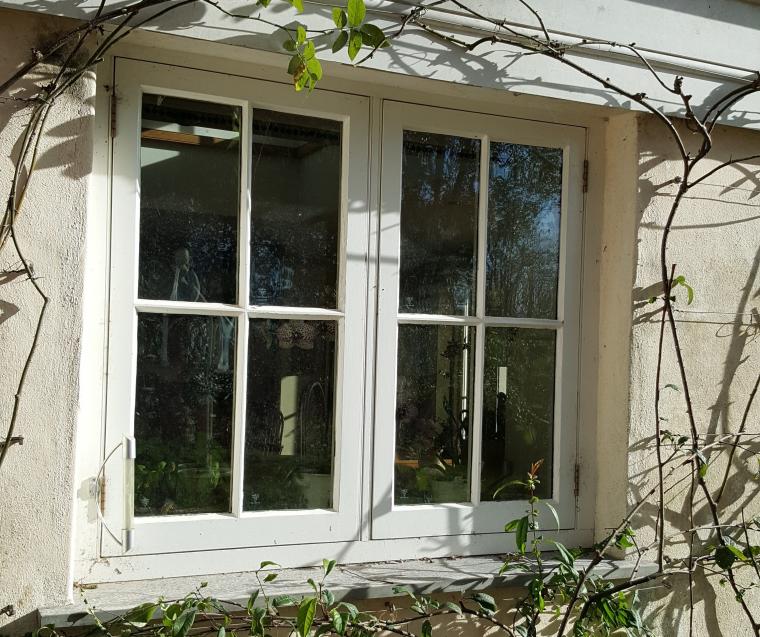
Iroko. The teak substitute. Iroko is a hard and very, very durable timber. It can make a very good window but it's not always our first choice. It's more expensive than Idigbo and harder on our tools. On occasion, although not too often, it can distort and bend. Also, due to it's somewhat oily nature, it can be more difficult to get a good long term success with coatings. We prefer not to paint this timber. Clearly, if the paint comes off, the timber below will not rot, but it's not much fun having shabby looking windows. With Iroko, it's been our experience that the best results are with a stain and being prepared to reapply on a regular basis, just to keep things looking fresh.
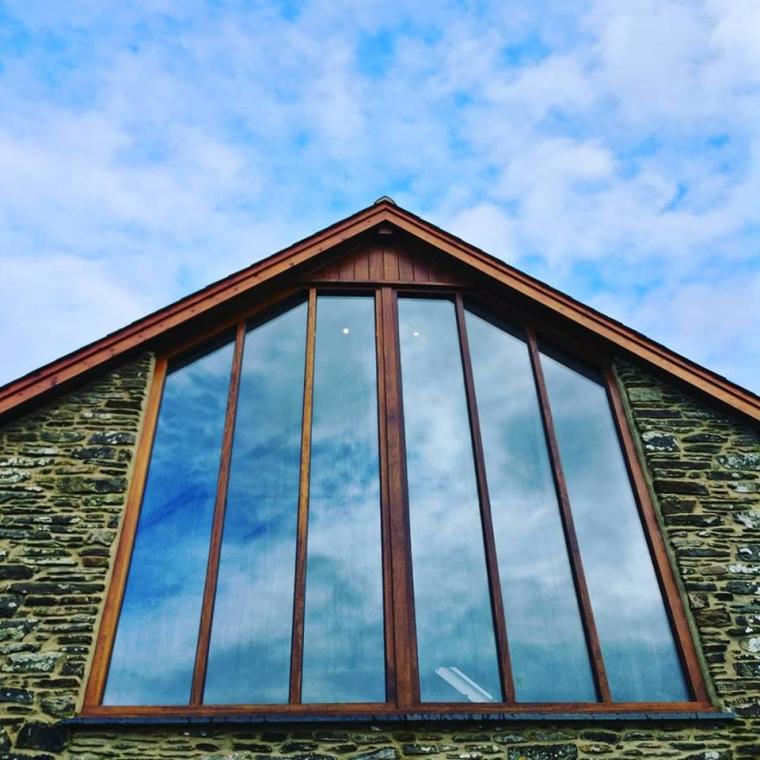
Sapele. The look of mahogany with movement issues. We've made quite a bit of joinery from Sapele, although not so much in recent years. Here in Devon, we've found the big issue with Sapele to be moisture movement. Clearly, in other parts of the UK it's less of an issue, but having to visit site and ease things is not good for us or our customers. We would still use it if a client was sure it was right for them, but we would make them aware of the issues and pitfalls. The fact remains though, it is approproate to use it. It's a dense and hard timber and works really nicely in our joinery workshop. But if it were windows for my own house this would not be my first choice. Instead of Sapele, we would recommend Red Grandis for your wooden windows, doors or joinery.
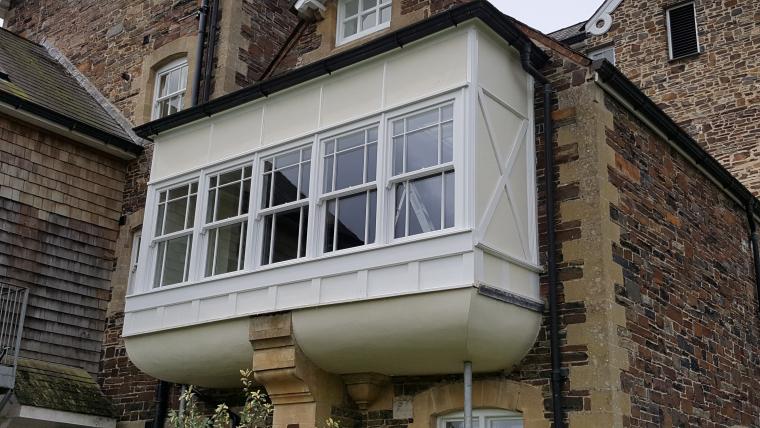
European Redwood. Deposed Royalty. Often called "softwood" or "pine" by the trade, European Redwood used to be the undisputed number one choice for hundreds of years. A huge ammount of old windows made from this wood still survive, the oldest we've worked on were old sash windows from around 1670. It's odd to say, but I really wish we could use this timber and promote it's use, but I can't. In this blog post I described the issues that I thought could describe the decline of this timber. I would still consider using it in sheltered areas, but I lack confidence in it so much, that I would decline to use in anything approaching an exposed location. We recommend the use of Red Grandis for making windows, doors and joinery instead of European Redwood.
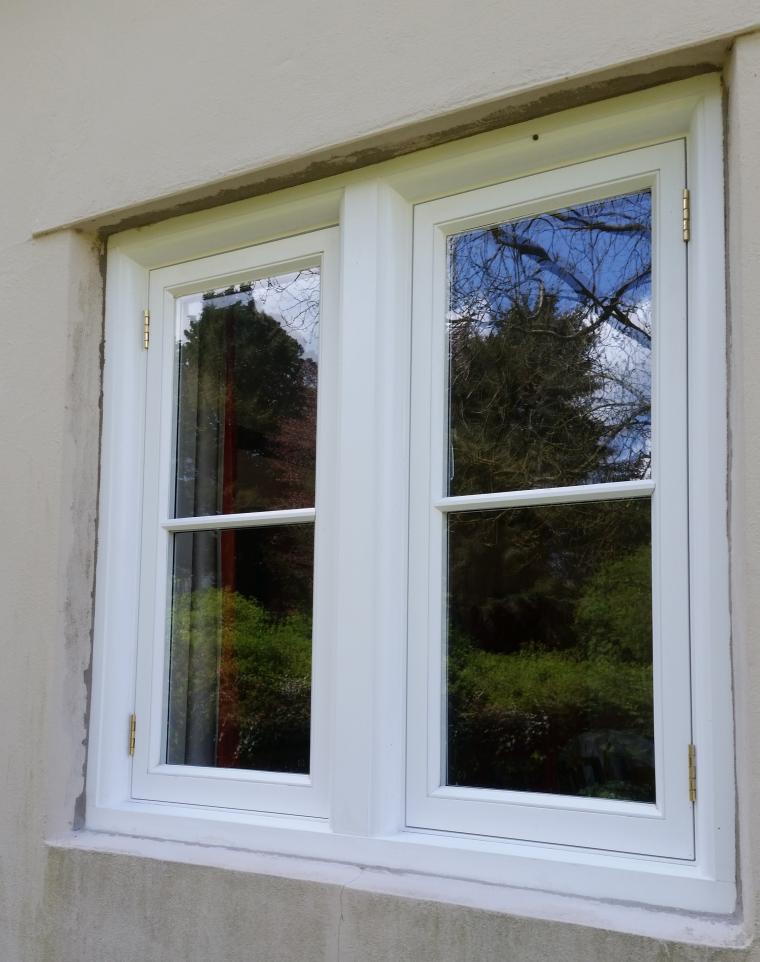
We hope that overview of the different timbers that can be used has been useful to you. If you would like any further information please feel free to call us on 01769 572 134 or email us through our contacts page
